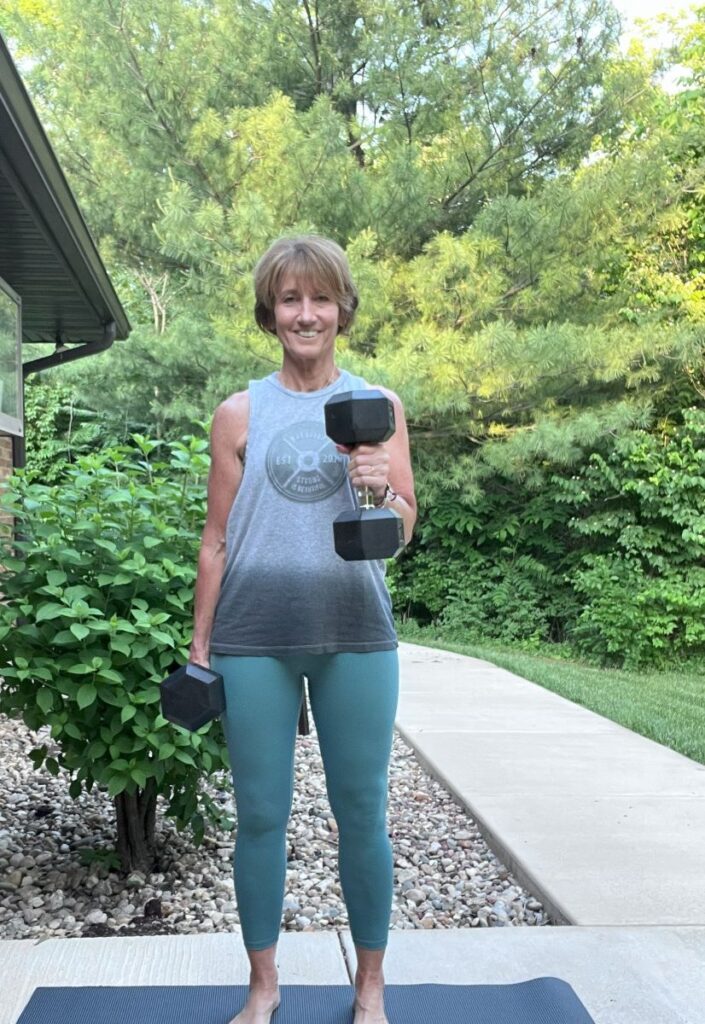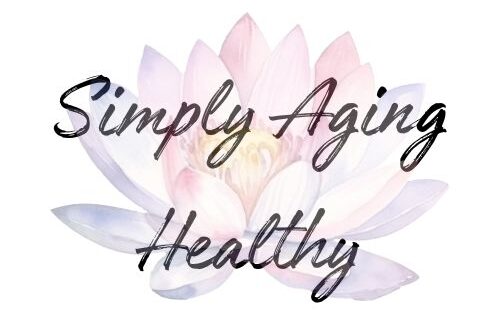Sweet Dreams: 12 Ways to Help You Sleep Better
Ah, sleep. That elusive wonder that so many of us crave, yet so often struggle to achieve.
That’s because as we age, our sleep patterns tend to change.
I have personally noticed that a good night’s sleep has become more and more difficult over the past few years.
I find myself either not being able to go to sleep or waking up in the middle of the night and not able to return to that wonderful place called dreamland.
As a nurse who worked for a pulmonologist who specialized in sleep, I know first-hand the problems that lack of sleep can cause both mentally and physically.
So, when I realized that my sleep patterns were changing, and I was experiencing restless sleep and my nights were shorter than normal – I started to become concerned.
This forced me to try changing things in my daily routine just a bit.
I found that with a few lifestyles changes my sleep has been improving.
If you have been struggling with sleep like me – stick around and let’s explore why a good night’s sleep is so important and ways to help you sleep better with a few lifestyle adjustments.
Let’s reclaim those blissful nights of sleep that we’ve come to cherish.

6 Benefits of A Good Night’s Sleep
1. Better Physical Health
As we age, our bodies are not as resilient as they once were.
Getting a good night’s sleep can help improve your physical health by allowing your body to repair itself.
Getting the proper amount of sleep can help reduce the risk of heart disease, inflammation, stroke, and diabetes.
2. Improved Brain Function:
Proper brain function helps with many issues, like memory, mental focus, and language.
As we age, we can become more forgetful but a good night’s sleep can help to improve your brain power.
This is because sleep is important for collecting memories and processing information.
3. Improves Overall Mood:
If you find yourself moody or irritable during the day, then sleep may be what you need.
When you sleep well, it helps your brain process emotions – too little sleep, over time, can cause you to have more negative thoughts. This can lead to anxiety and/or depression.
This is because lack of sleep can impact the balance of our hormones and neurotransmitters in the brain.
By getting a good night’s sleep, you can have a more stable and positive mood.
4. Better Weight Management:
Have you noticed weight gain as you’ve aged?
It seems that no matter what you do, you can’t seem to keep your weight under control like you used to.
Well, sleep may be helpful with managing your weight.
Sleep deprivation affects hormone levels such as ghrelin, which stimulates your appetite, and leptin, which uses the brain to tell you that you are full.
So, not getting enough sleep can alter your appetite and cause you to eat more and to eat unhealthily.
When we’re tired, we tend to choose sugary snacks or fast foods, so a good night’s sleep can help us keep our healthy eating habits.

5. Improved Physical Endurance
Not sleeping well can also affect your muscle gains.
A good night’s sleep helps with muscle repair. Lack of sleep decreases your body’s ability to gain and repair muscle.
It decreases your speed and accuracy.
Balance and weightlifting could suffer due to poor sleep.

6. Improved Immune Function
During sleep, the body produces cytokines, which are proteins that are important for fighting off infections.
Lack of sleep slows the production of these proteins and has been linked to a weakened immune system.
With a good night’s sleep, you can improve your immune function and maybe avoid some health problems.
This is especially important for those of us who may be more vulnerable to illnesses and infections.
12 Ways to Help You Sleep Better
Getting a good night’s sleep is crucial for my overall health and well-being.
Here are some tips that I find helpful for getting the most restful sleep possible:
1. Stick to a Consistent Sleep Schedule
I try to go to bed and wake up at the same time every day, even on weekends.
This helps regulate my body’s internal clock, making it easier to fall asleep and wake up feeling refreshed.
2. Create a Relaxing Sleep Environment
I make sure my bedroom is cool, dark, and quiet. I use blackout curtains to block out any light, and if I’m away from home, I wear a sleep mask.
If noise is a problem for you, try some earplugs.
I also switched out my mattress and started using more ergonomic pillows to ensure that I’m as comfortable as possible.

3. Limit Caffeine and Alcohol
I try to avoid caffeine for at least 4-6 hours before bedtime because it can interfere with my ability to fall asleep.
I also limit my alcohol intake – of course, not every night! But alcohol can disrupt my sleep and cause me to wake up feeling groggy, so I do try to avoid drinking alcohol right before bed.

4. Develop a Bedtime Routine
I find it helpful to wind down before bedtime by doing my facial routine.
If that’s not for you, then try something relaxing, like reading a book or taking a warm bath.
Maybe a bedtime yoga session or meditation would be helpful for you!
This just helps signal to my body that it’s time to sleep.
5. Keep a Sleep Diary
I keep a sleep diary to track my sleep habits and identify any patterns or issues that may be affecting my sleep.
This helps me make any necessary adjustments to my sleep routine.
6. Manage Stress
I try to manage my stress levels by practicing relaxation techniques like deep breathing or meditation.
I also try to avoid stressful activities or conversations before bedtime.
7. Exercise Regularly
Regular exercise helps me fall asleep faster and stay asleep longer.
I try to get at least 30 minutes of exercise most days of the week.
8. Watch What I Eat
I avoid heavy or spicy meals before bedtime, if I don’t it just seems to sit on my stomach making me feel uncomfortable.
It can also cause indigestion and interfere with my sleep.
I also try to watch my diet most of the time. I do a 80/20 dieting – this is where you eat healthy 80% of the time and then give yourself a break 20% of the time.
This helps me stay at a healthy weight and keeps my blood sugar in check, which can affect my sleep quality.

9. Make A To-Do List
I have found this to be extremely helpful.
Often times, I can’t sleep because I can’t shut my brain off.
So, every night before I go to bed, I write up a to-do list for the next day.
It helps me to organize my thoughts before bed.
Just writing things down helps me to feel more organized and in control.
It helps to decrease my anxiety gets it off my mind, I can just leave it for tomorrow.
10. Get Outside Everyday
Try to get outside at least 2-3 times every day for at least 30 minutes.
I know that this sounds so simple, but it is something that I sometimes struggle to do.
If you’re like me, your day just gets away from you! Before you know it, the day is winding down, and you realize that you only went outside to go from your car to your building or home.
Be sure to take a minute to step back, get some fresh air, and “smell the roses.” This can help you clear your mind and slow down your thoughts.
Also, when you expose yourself to natural light, you can reset your body clock, which helps you maintain a healthy sleep-wake cycle.

11. Avoid Napping
Personally, I am not a napper, but if you enjoy naps and find sleeping at night difficult, this can be part of the problem.
Taking naps decreases the amount of sleep we need at night. It can cause issues with falling asleep at bedtime and can cause insomnia.
If you need a nap during the day, try not to nap more than 30 minutes.
This may be different if you work a night shift. Naps may actually be beneficial for you.
I worked night shifts for several years and could never sleep more than 4-5 hours at a time. So, I would nap to make up for the sleep that I lost.
12. Be Mindful of Medications
I don’t take any medications, but if you do, make sure to read the labels of any medications. If they have a side effect that can affect your sleep, then you may need to discuss this with your doctor.
Getting a Great Night Sleep is Possible
As you can see, getting a good night’s sleep is important for physical and mental health, managing mood and weight, and boosting immune function.
While there is no one-size-fits-all approach to improving our sleep, we can take steps to encourage restful nights. Maintaining a regular sleep-wake schedule and creating a calming sleep environment are just a few ways to improve our snooze.
Because at the end of the day, a “sweet dream” night produces a happier and healthier tomorrow.
